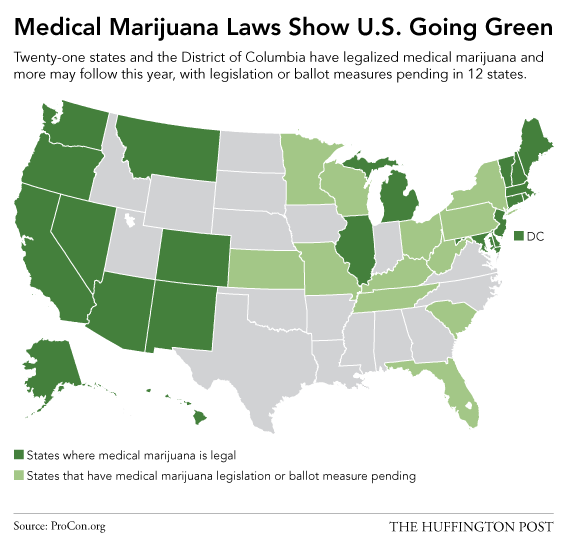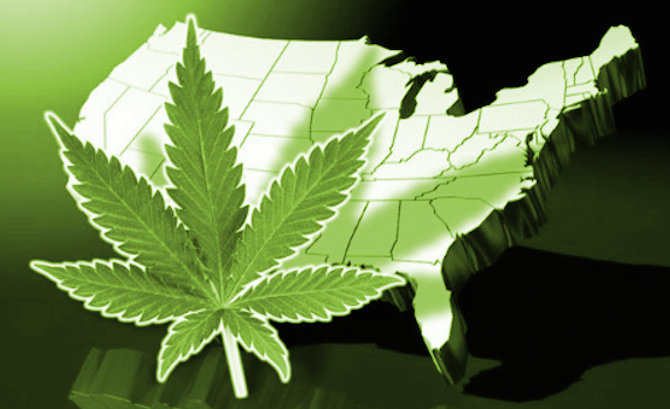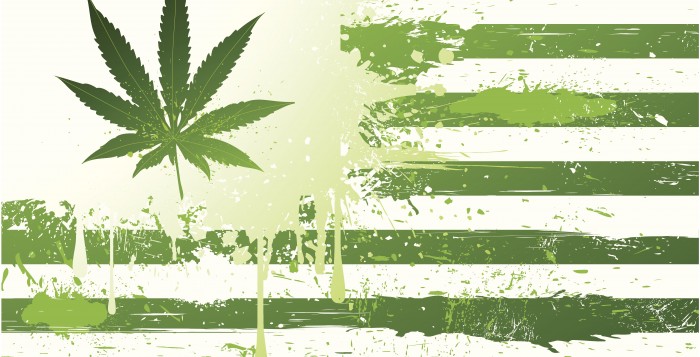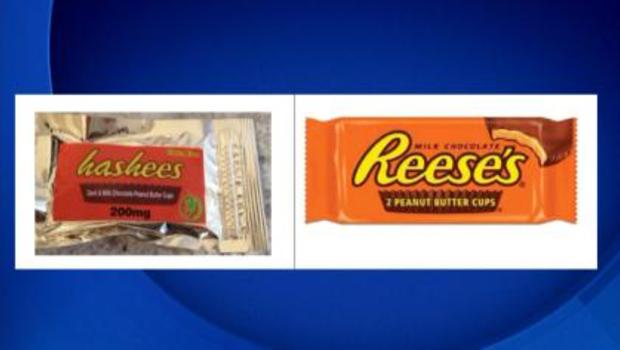Here’s the Weed Law In Every Damn Legal State
Alaska
Law: Measure 2 (52.15%)
Year Passed: 2014
Date Implemented: February 24th, 2015
Age Requirement: 21
Administrative Agency: Marijuana Control Board
Tax Structure: $50 per ounce on all marijuana sold by wholesale cultivation facilities, additional local taxes expected
Recreational Outlets: No, expected to open Spring 2016
Possession Limit: 1 oz, and all marijuana from a grow, at the location of that grow
Home Cultivation: 6 plants, with only 3 in flowering stage at a time
Transport: 1 oz.
Colorado
Law: Amendment 64 (55.3%)
Year Passed: 2012
Date Implemented: January 1st, 2014
Age Requirement: 21
Administrative Agency: Department of Revenue, Marijuana Enforcement Division (MED)
Tax Structure: 15% on grower, 10% special sales tax, 2.9% standard sales tax, additional local taxes may apply
Recreational Retail Outlets: Yes
Possession Limit: 1 oz, non-residents of Colorado 0.25 oz
Home Cultivation: 6 plants, with only 3 in flowering stage at a time
Transport: 1 oz, open container law applies
Oregon
Law: Measure 91 (56.1%)
Year Passed: 2014
Date Implemented: July 1st, 2015
Age Requirement: 21
Administrative Agency: Oregon Liquor Control Commission
Tax Structure: 17% sales tax
Recreational Retail Outlets: MMJ dispensaries to begin selling recreational October 2015 via Senate Bill 460. Possession Limit: 8 oz at home, 1 oz outside, 1 lb solid edibles, 72 oz liquid, 1 oz extract (concentrates)
Home Cultivation: 4 plants
Transport: 1 oz within state lines, Non-flowering plants
Washington
Law: Initiative 502 (55.7%)
Year Passed: 2012
Date Implemented: July 8th, 2014
Age Requirement: 21
Administrative Agency: Washington State Liquor Control Board
Tax Structure: 25% at all stages, grower, processer, retailer and customer, plus normal sales taxes
Recreational Retail Outlets: Yes
Possession Limit: 1 oz marijuana, 16 oz of marijuana-infused products in edible form, and 72 oz of marijuana products in liquid form
Home Cultivation: No
Transport: 1 oz
Washington D.C. (formally District of Columbia)
Law: Initiative 71 (64.8%)
Year Passed: 2014
Date Implemented: February 26, 2015
Age Requirement: 21
Administrative Agency: None
Tax Structure: None, retail & sale is still illegal
Recreational Retail Outlets: No
Possession Limit: 2 oz
Home Cultivation: 6 plants, with only 3 in flowering stage at a time
Transport: 2 oz
Alaska
Law: Measure 2 (52.15%)
Year Passed: 2014
Date Implemented: February 24th, 2015
Age Requirement: 21
Administrative Agency: Marijuana Control Board
Tax Structure: $50 per ounce on all marijuana sold by wholesale cultivation facilities, additional local taxes expected
Recreational Outlets: No, expected to open Spring 2016
Possession Limit: 1 oz, and all marijuana from a grow, at the location of that grow
Home Cultivation: 6 plants, with only 3 in flowering stage at a time
Transport: 1 oz.
Colorado
Law: Amendment 64 (55.3%)
Year Passed: 2012
Date Implemented: January 1st, 2014
Age Requirement: 21
Administrative Agency: Department of Revenue, Marijuana Enforcement Division (MED)
Tax Structure: 15% on grower, 10% special sales tax, 2.9% standard sales tax, additional local taxes may apply
Recreational Retail Outlets: Yes
Possession Limit: 1 oz, non-residents of Colorado 0.25 oz
Home Cultivation: 6 plants, with only 3 in flowering stage at a time
Transport: 1 oz, open container law applies
Oregon
Law: Measure 91 (56.1%)
Year Passed: 2014
Date Implemented: July 1st, 2015
Age Requirement: 21
Administrative Agency: Oregon Liquor Control Commission
Tax Structure: 17% sales tax
Recreational Retail Outlets: No; Still illegal to buy or sell. Outlets expected 2016 – MMJ dispensaries may begin selling recreational October 2015 if Senate Bill 460 is signed into law.
Possession Limit: 8 oz at home, 1 oz outside, 1 lb solid edibles, 72 oz liquid, 1 oz extract (concentrates)
Home Cultivation: 4 plants
Transport: 1 oz within state lines, Non-flowering plants
Washington
Law: Initiative 502 (55.7%)
Year Passed: 2012
Date Implemented: July 8th, 2014
Age Requirement: 21
Administrative Agency: Washington State Liquor Control Board
Tax Structure: 25% at all stages, grower, processer, retailer and customer, plus normal sales taxes
Recreational Retail Outlets: Yes
Possession Limit: 1 oz marijuana, 16 oz of marijuana-infused products in edible form, and 72 oz of marijuana products in liquid form
Home Cultivation: No
Transport: 1 oz
Washington D.C. (formally District of Columbia)
Law: Initiative 71 (64.8%)
Year Passed: 2014
Date Implemented: February 26, 2015
Age Requirement: 21
Administrative Agency: None
Tax Structure: None, retail & sale is still illegal
Recreational Retail Outlets: No
Possession Limit: 2 oz
Home Cultivation: 6 plants, with only 3 in flowering stage at a time
Transport: 2 oz
Thanks to Smoker’s Guide for their in-depth research.











